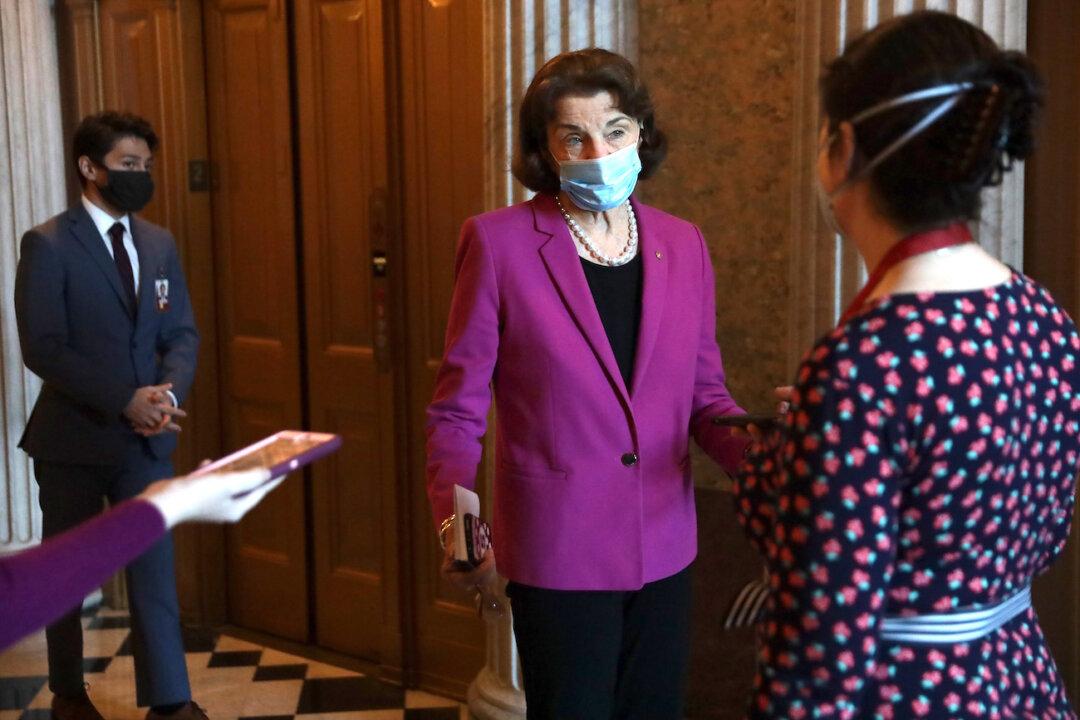The federal government would withhold COVID-19 relief from states which do not require people to wear masks under an amendment proposed by Sen. Diane Feinstein (D-Calif.)
Feinstein said in a statement that she plans to formally introduce the amendment to the next COVID-19 stimulus bill in the Senate. She called on fellow lawmakers to support the measure.





